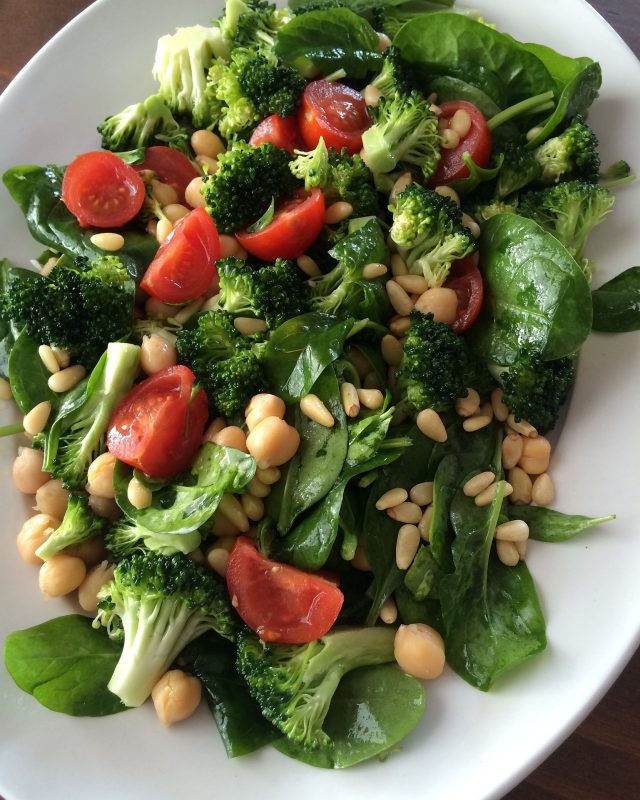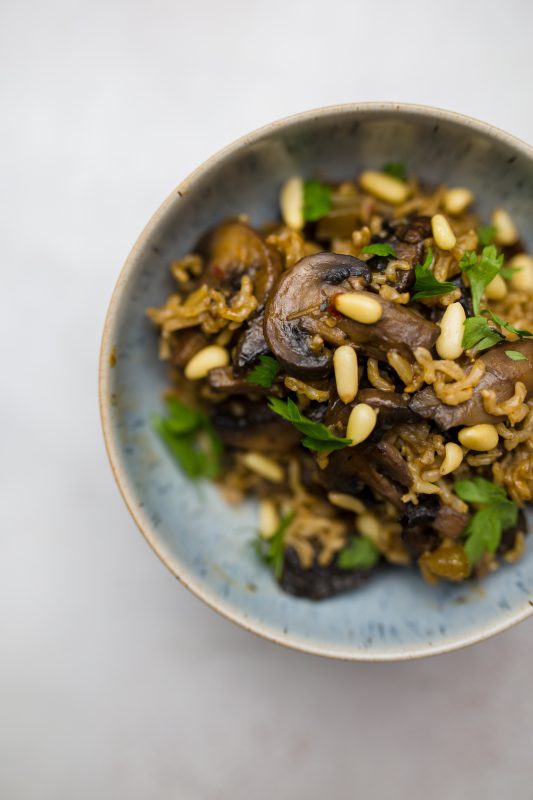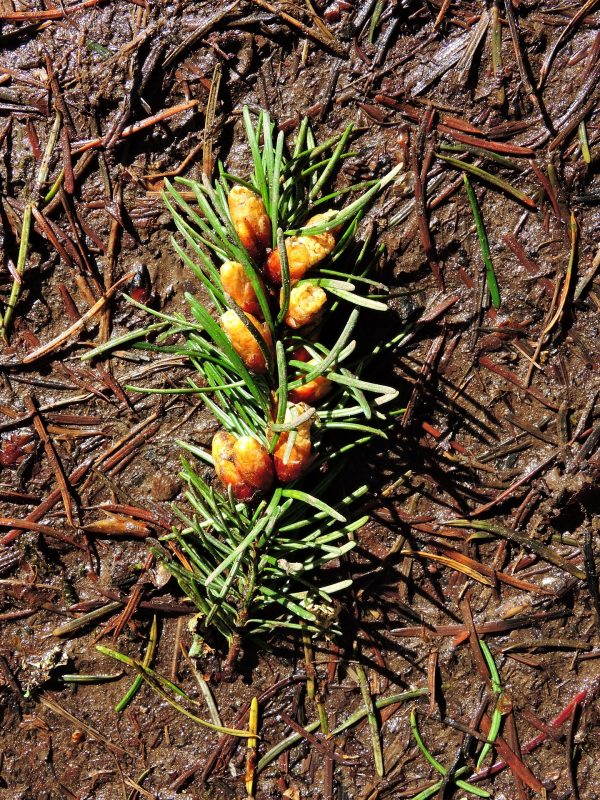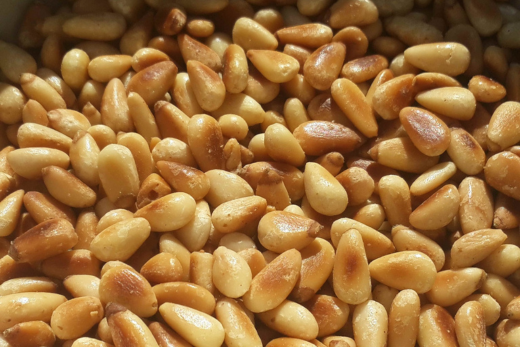Pine nuts, the edible seeds of pine trees, have gained significant popularity in recent years not only for their unique, buttery taste and texture but also for their potential health benefits.
These small yet mighty nuts have found their way into a wide range of culinary traditions, from Mediterranean dishes to Asian cuisines. Beyond their culinary appeal, pine nuts offer a nutritional punch, packed with essential nutrients that can support overall well-being.
In this article, we will delve into the health benefits of pine nuts, exploring how their consumption may positively impact heart health, weight management, inflammation reduction, and more. Get ready to discover the nutritional power and potential of these humble yet remarkable nuts.
Nutritional Profile Of Pine Nuts

Pine nuts boast an impressive nutritional profile that contributes to their positive impact on health.
These tiny nuts are a rich source of healthy fats, with approximately 95% of their total calories derived from fats.
However, the majority of these fats are monounsaturated fats, particularly oleic acid, which has been linked to several health benefits.
In addition to their healthy fat content, pine nuts also contain a moderate amount of protein and dietary fiber.
Protein is essential for various bodily functions, including muscle growth and repair, while dietary fiber supports healthy digestion and helps maintain stable blood sugar levels.
Moreover, pine nuts are packed with essential vitamins and minerals, including vitamin E, vitamin K, magnesium, zinc, and manganese.
Vitamin E is a potent antioxidant that helps protect cells from damage caused by free radicals, while magnesium plays a crucial role in maintaining healthy nerve and muscle function.

Healthy Benefits Of Eating Pine Nuts
Heart Health And Cholesterol Control
The monounsaturated fats found abundantly in pine nuts play a crucial role in promoting heart health. Numerous studies have shown that these healthy fats can help reduce the risk of heart disease. By replacing saturated and trans fats in the diet with monounsaturated fats, individuals can improve their cholesterol profile and lower the risk of developing cardiovascular issues.
Research has specifically highlighted1 the potential of pine nuts to positively impact cholesterol levels. Studies have demonstrated that incorporating pine nuts into the diet can lead to a decrease in LDL (bad) cholesterol levels, which are associated with an increased risk of heart disease. Simultaneously, pine nuts have been found to increase HDL (good) cholesterol levels, which help remove excess cholesterol from the bloodstream and offer protection against heart disease.
Weight Management And Satiety

Pine nuts can be a helpful addition to a weight management plan due to their ability to promote satiety.
They are rich in both protein and dietary fiber; two nutrients known to increase feelings of fullness and reduce appetite.
The fatty acids2 found in pine nuts are said to decrease your rate of eating by 3.7% as the acids make your brain believe it’s full.
Protein is particularly effective at promoting satiety because it takes longer to digest compared to carbohydrates or fats.
Pine nuts contain a moderate amount of protein, which can help curb cravings and prevent overeating.
Additionally, protein plays a vital role in preserving muscle mass during weight loss, which is important for maintaining a healthy metabolism.
Dietary fiber is another key component of pine nuts that contributes to feelings of satiety.
Fiber adds bulk to the diet and slows down digestion, keeping you feeling fuller for longer.
By incorporating pine nuts into meals or snacks, you can enhance the fiber content of your diet and improve overall satiety.

Antioxidant And Anti-Inflammatory Properties
Pine nuts contain a variety of antioxidants, including vitamin E and polyphenols, which play a vital role in combating oxidative stress and reducing inflammation in the body.
Oxidative stress occurs when there is an imbalance between the production of harmful free radicals and the body’s ability to neutralize them, leading to cell damage and inflammation.
Vitamin E helps protect cells from oxidative damage caused by free radicals. By neutralizing these free radicals, vitamin E can help prevent cellular damage and reduce inflammation. This antioxidant action is particularly important in the prevention of chronic diseases such as heart disease, cancer, and neurodegenerative disorders.
Polyphenols have been shown to possess anti-inflammatory properties. They help reduce inflammation by inhibiting the production of pro-inflammatory substances in the body. Research has indicated that the consumption of polyphenol-rich foods, including pine nuts, is associated with lower levels of inflammatory markers.
Glycemic Control
Pine nuts can be a beneficial addition to a diet aimed at glycemic control and blood sugar management. One key factor contributing to their positive impact is their low glycemic index (GI).

The glycemic index is a measure of how quickly a carbohydrate-containing food raises blood sugar levels. Foods with a low GI, like pine nuts, cause a slower and more gradual increase in blood sugar levels.
Furthermore, research has indicated that pine nuts may improve post-meal glucose response and insulin sensitivity.
A study found that including pine nuts in a high-carbohydrate meal led to a reduction in post-meal blood sugar levels compared to the meal without pine nuts.
Another study demonstrated that pine nuts improved insulin sensitivity due to the volume of mineral manganese3, which is important for the body’s ability to efficiently regulate blood sugar levels.
Other Potential Health Benefits And Precautions
Apart from the discussed health benefits, pine nuts offer additional advantages worth considering. They contain lutein and zeaxanthin, two antioxidants known for their role in promoting eye health. These compounds have been associated with a reduced risk of age-related macular degeneration and cataracts, supporting overall vision health.
However, it is important to be aware of potential allergic reactions to pine nuts. Some individuals may experience allergic responses, ranging from mild symptoms like itching and swelling to severe reactions such as difficulty breathing. It is crucial to be mindful of individual sensitivities and seek medical advice if any allergic reactions occur after consuming pine nuts.
Furthermore, sourcing high-quality pine nuts is essential to reap their maximum health benefits. Due to their high-fat content, pine nuts are prone to rancidity, which can negatively impact their flavor and nutritional value. It is recommended to purchase pine nuts from reputable sources, ensuring freshness and quality.
Incorporating pine nuts into a well-balanced diet, considering individual allergies, and obtaining high-quality nuts can help individuals enjoy their potential health benefits while minimizing any associated risks or drawbacks.



